苄基三丁基氯化铵,Benzyltributylammonium chloride
产品编号:BJHY-193771| CAS NO:23616-79-7| MDL NO:MFCD00011849| 分子式:C19H34ClN; C6H5CH2N(Cl)(CH2CH2CH2CH3)3| 分子量:311.93
三丁基苄基氯化铵是一种生物化学试剂,可作为生物材料或有机化合物进行生命科学相关研究。
本网站销售的所有产品仅用于工业应用或者科学研究等非医疗目的,不可用于人类或动物的临床诊断或者治疗,非药用,非食用,
| 产品名称 | 苄基三丁基氯化铵 |
|---|---|
| 英文名称 | Benzyltributylammonium chloride |
| CAS编号 | 23616-79-7 |
| 产品描述 | 三丁基苄基氯化铵是一种生物化学试剂,可作为生物材料或有机化合物进行生命科学相关研究。 |
| 产品熔点 | 155-163 °C(lit.) |
| 精确质量 | 311.237976 |
| LogP | 2.40770 |
| 外观性状 | 白色至淡黄色晶体 |
| 溶解性 | soluble |
| 稳定性 | 如果遵照规格使用和储存则不会分解 避免接触氧化物 |
| 储存条件 | 保持贮藏器密封 放入紧密的贮藏器内,储存在阴凉,干燥的地方 |
相关文档
化学品安全说明书(MSDS)
下载MSDS质检证书(COA)
相关产品
| 危害码 (欧洲) | Xn:Harmful |
|---|---|
| 风险声明 (欧洲) | R22;R36/37/38 |
| 安全声明 (欧洲) | S26-S36-S37/39-S45-S36/37/39 |
| 危险品运输编码 | UN 3263 8/PG 2 |
| WGK德国 | 3 |
| 海关编码 | 29239000 |
Synonym:BTBAC Section 2 - COMPOSITION, INFORMATION ON INGREDIENTS
Risk Phrases: 22 36/37/38 Section 3 - HAZARDS IDENTIFICATION EMERGENCY OVERVIEW
Harmful if swallowed. Irritating to eyes, respiratory system and skin.Hygroscopic (absorbs moisture from the air). Potential Health Effects Eye: Causes eye irritation. Skin: Causes skin irritation. Ingestion: May cause irritation of the digestive tract. May be harmful if swallowed. Inhalation: Causes respiratory tract irritation. Chronic: No information found. Section 4 - FIRST AID MEASURES Eyes: Flush eyes with plenty of water for at least 15 minutes, occasionally lifting the upper and lower eyelids. Get medical aid immediately. Skin: Get medical aid. Flush skin with plenty of water for at least 15 minutes while removing contaminated clothing and shoes. Wash clothing before reuse. Ingestion: If victim is conscious and alert, give 2-4 cupfuls of milk or water. Never give anything by mouth to an unconscious person. Get medical aid immediately. Inhalation: Remove from exposure and move to fresh air immediately. If not breathing, give artificial respiration. If breathing is difficult, give oxygen. Get medical aid. Notes to Physician: Antidote: None reported. Section 5 - FIRE FIGHTING MEASURES General Information: As in any fire, wear a self-contained breathing apparatus in pressure-demand, MSHA/NIOSH (approved or equivalent), and full protective gear. During a fire, irritating and highly toxic gases may be generated by thermal decomposition or combustion. This material in sufficient quantity and reduced particle size is capable of creating a dust explosion. Extinguishing Media: Use water spray, dry chemical, carbon dioxide, or appropriate foam. Section 6 - ACCIDENTAL RELEASE MEASURES General Information: Use proper personal protective equipment as indicated in Section 8. Spills/Leaks: Vacuum or sweep up material and place into a suitable disposal container. Clean up spills immediately, observing precautions in the Protective Equipment section. Avoid generating dusty conditions. Provide ventilation. Section 7 - HANDLING and STORAGE Handling: Wash thoroughly after handling. Remove contaminated clothing and wash before reuse. Use with adequate ventilation. Minimize dust generation and accumulation. Avoid contact with eyes, skin, and clothing. Keep container tightly closed. Avoid breathing dust. Storage: Store in a cool, dry, well-ventilated area away from incompatible substances. Keep containers tightly closed. Section 8 - EXPOSURE CONTROLS, PERSONAL PROTECTION Engineering Controls: Facilities storing or utilizing this material should be equipped with an eyewash facility and a safety shower. Use adequate ventilation to keep airborne concentrations low. Exposure Limits CAS# 23616-79-7: Personal Protective Equipment Eyes: Wear appropriate protective eyeglasses or chemical safety goggles as described by OSHA's eye and face protection regulations in 29 CFR 1910.133 or European Standard EN166. Skin: Wear appropriate protective gloves to prevent skin exposure. Clothing: Wear appropriate protective clothing to prevent skin exposure. Respirators: Follow the OSHA respirator regulations found in 29 CFR 1910.134 or European Standard EN 149. Use a NIOSH/MSHA or European Standard EN 149 approved respirator if exposure limits are exceeded or if irritation or other symptoms are experienced. Section 9 - PHYSICAL AND CHEMICAL PROPERTIES Physical State: Crystalline powder Color: white Odor: None reported. pH: Not available. Vapor Pressure: Not available. Viscosity: Not available. Boiling Point: Not available. Freezing/Melting Point: 155-163 deg C (dec) Autoignition Temperature: Not applicable. Flash Point: Not applicable. Explosion Limits, lower: N/A Explosion Limits, upper: N/A Decomposition Temperature: 155-163 deg C Solubility in water: soluble in water Specific Gravity/Density: Molecular Formula: C19H34ClN Molecular Weight: 311.94 Section 10 - STABILITY AND REACTIVITY Chemical Stability: Stable under normal temperatures and pressures. Conditions to Avoid: Dust generation, moisture. Incompatibilities with Other Materials: Strong oxidizing agents. Hazardous Decomposition Products: Hydrogen chloride, nitrogen oxides, carbon monoxide, carbon dioxide. Hazardous Polymerization: Has not been reported. Section 11 - TOXICOLOGICAL INFORMATION RTECS#: CAS# 23616-79-7 unlisted. LD50/LC50: Not available. Carcinogenicity: Benzyltributylammonium chloride - Not listed by ACGIH, IARC, or NTP. Section 12 - ECOLOGICAL INFORMATION Section 13 - DISPOSAL CONSIDERATIONS Dispose of in a manner consistent with federal, state, and local regulations. Section 14 - TRANSPORT INFORMATION IATA Not regulated as a hazardous material. IMO Not regulated as a hazardous material. RID/ADR Not regulated as a hazardous material. Section 15 - REGULATORY INFORMATION European/International Regulations European Labeling in Accordance with EC Directives Hazard Symbols: XN Risk Phrases: R 22 Harmful if swallowed. R 36/37/38 Irritating to eyes, respiratory system and skin. Safety Phrases: S 26 In case of contact with eyes, rinse immediately with plenty of water and seek medical advice. S 37/39 Wear suitable gloves and eye/face protection. WGK (Water Danger/Protection) CAS# 23616-79-7: No information available. Canada CAS# 23616-79-7 is listed on Canada's NDSL List. CAS# 23616-79-7 is not listed on Canada's Ingredient Disclosure List. US FEDERAL TSCA CAS# 23616-79-7 is listed on the TSCA inventory. SECTION 16 - ADDITIONAL INFORMATION N/A |
|
~% 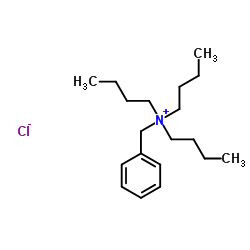
23616-79-7 |
| 文献:Journal of the American Chemical Society, , vol. 51, p. 3640 |
|
~% 
23616-79-7 |
| 文献:International Journal of Chemical Kinetics, , vol. 28, # 8 p. 615 - 626 |
| 上游产品 3 | |
|---|---|
| 下游产品 7 | |

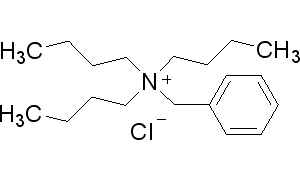
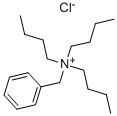

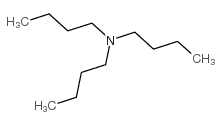
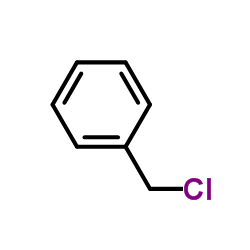
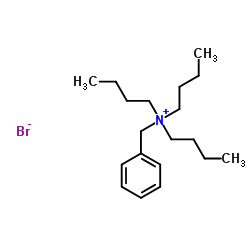
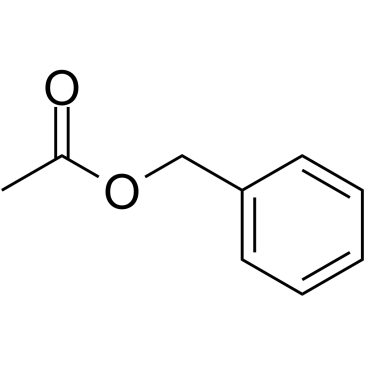
![4-[2-(5-乙基-2-吡啶基)乙氧基]苯甲醛结构式](/20230522/114393-97-4.png)

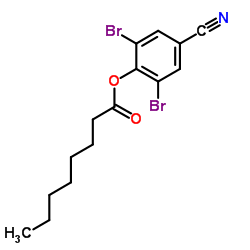
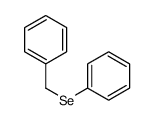
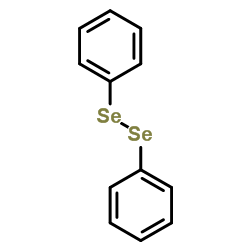
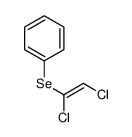





 浙公网安备 33010802013016号
浙公网安备 33010802013016号